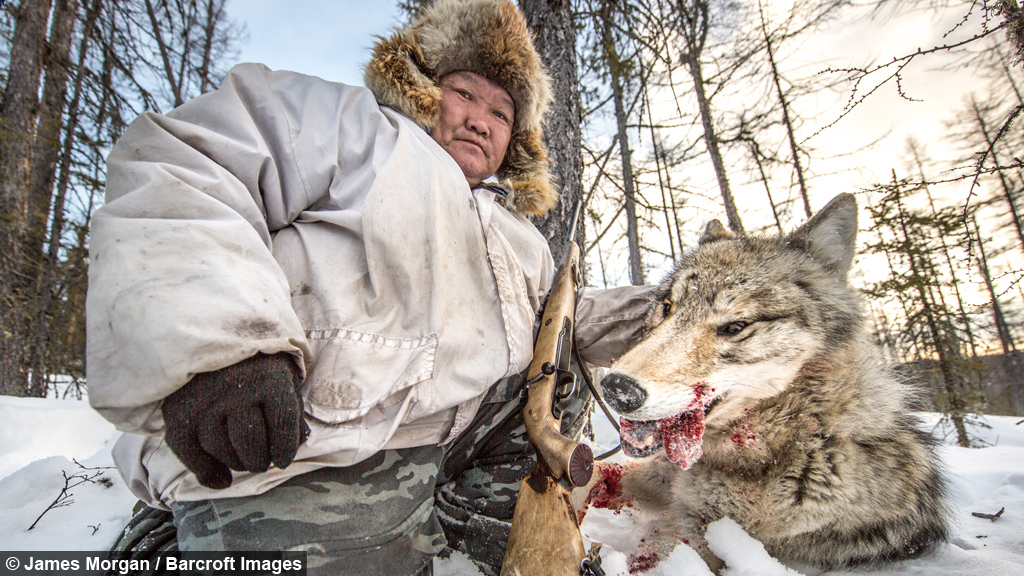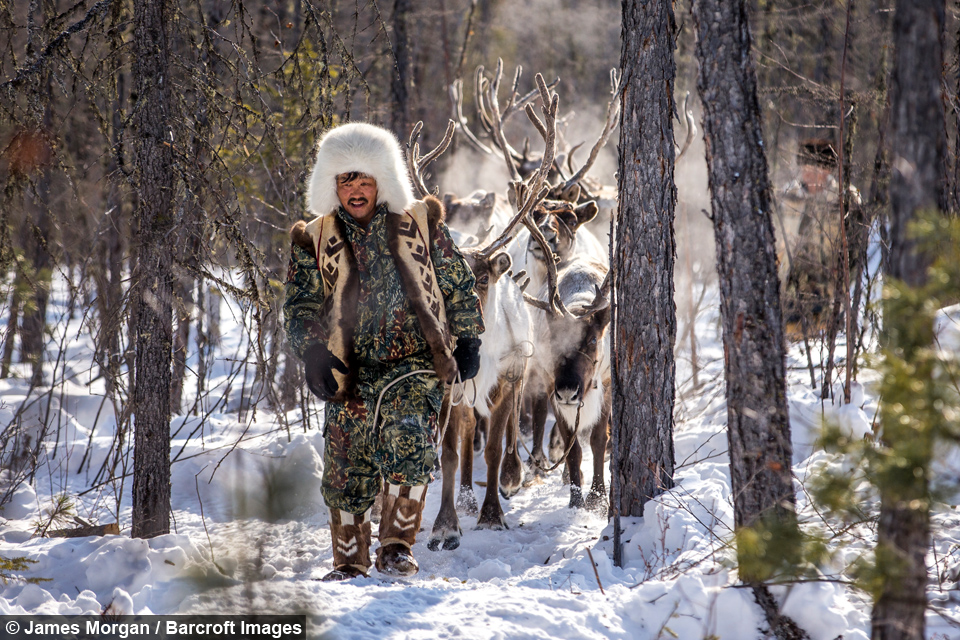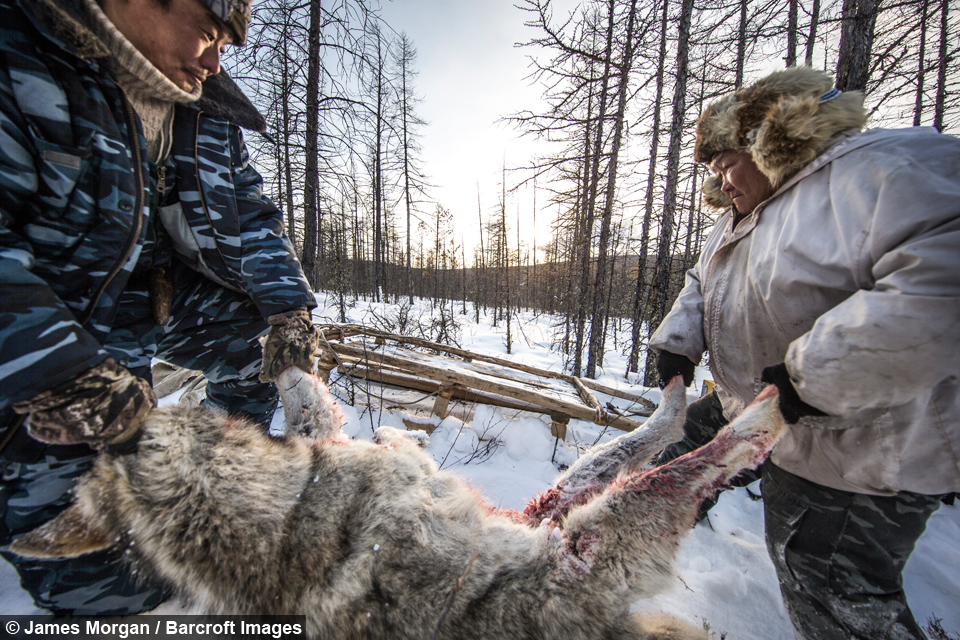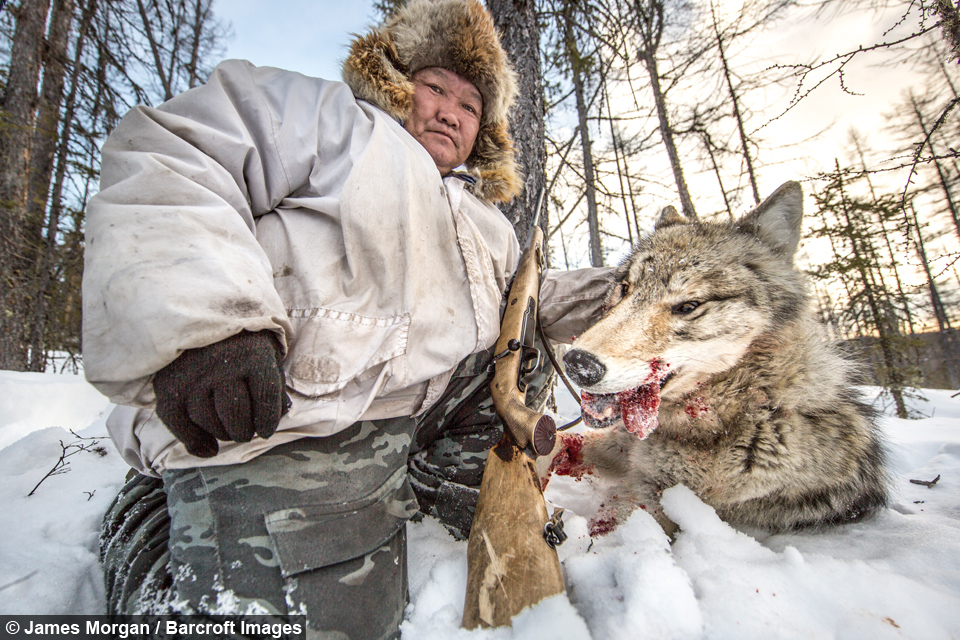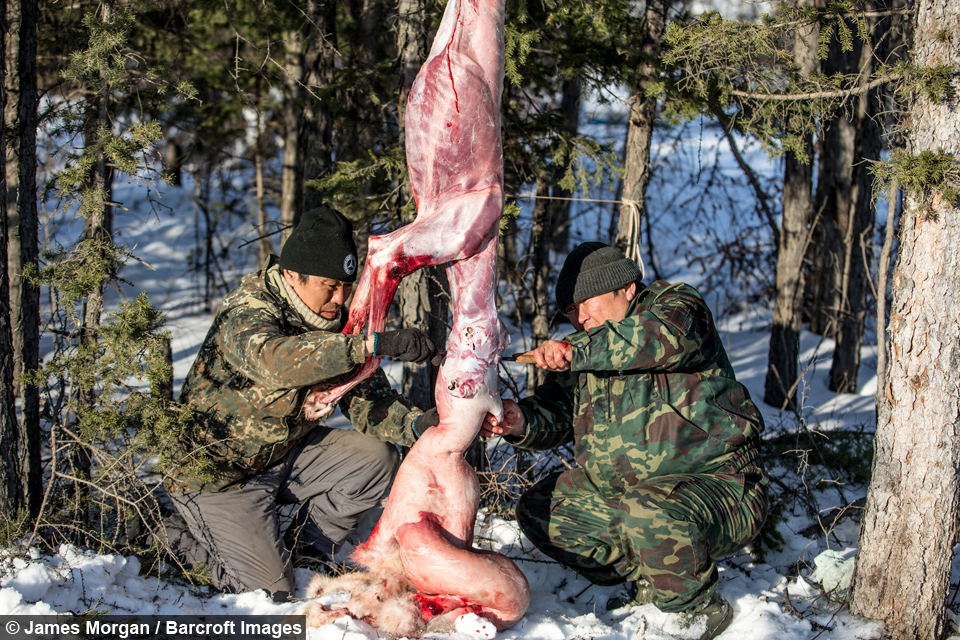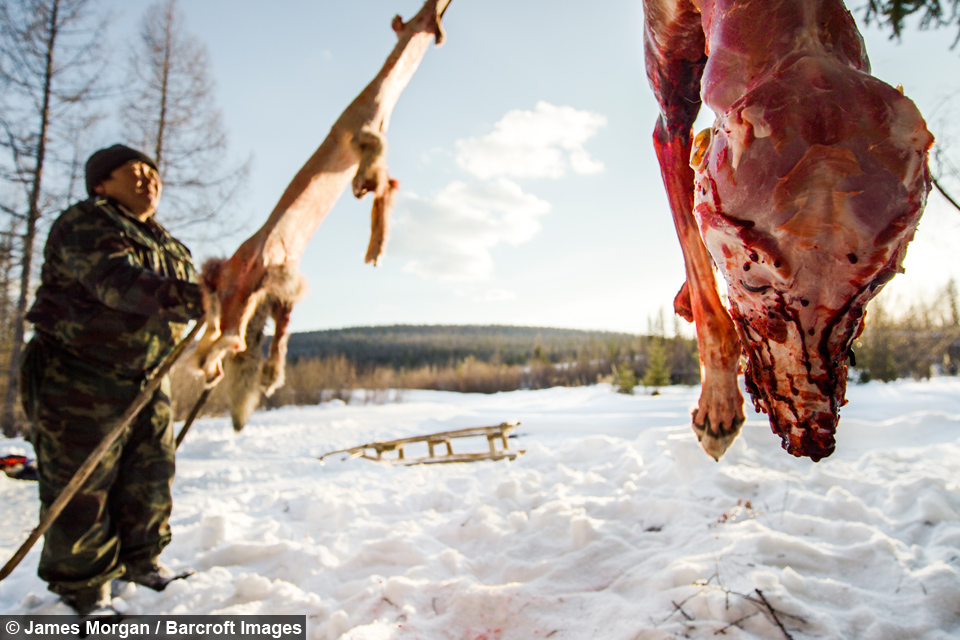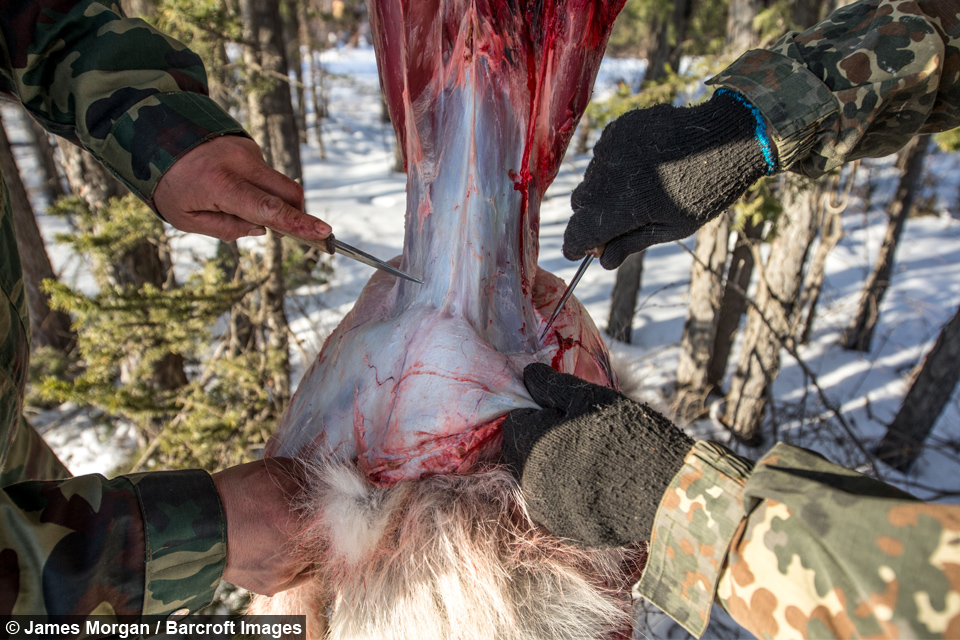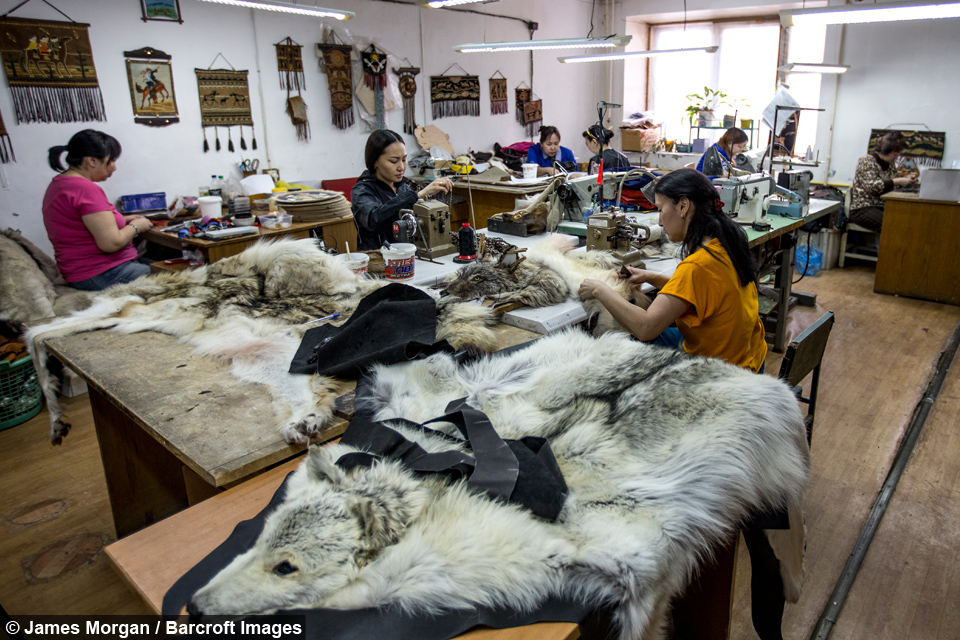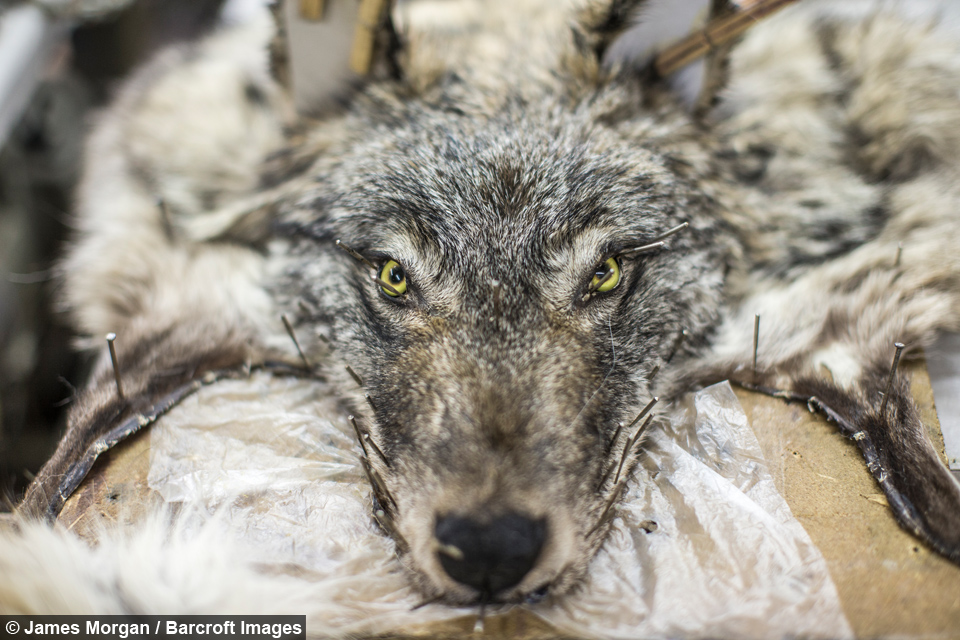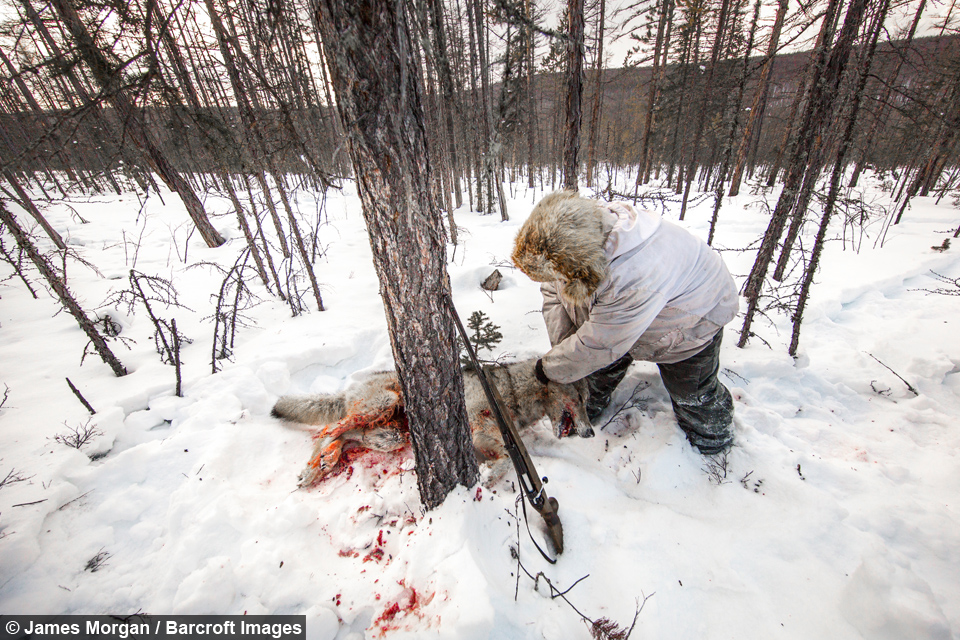The Wolf Hunters of Siberia
By Shannon Lane @Shannonroselane
Scroll down for the full story
IN ONE of the coldest states on Earth, the exploding wolf population has led the people to drastic measures in order to protect their livestock.
The indigenous people of Yakutia, Siberia, claim they are being pushed into poverty as their reindeer herds are attacked by growing numbers of wolves.
Wolves usually hunt in groups of six or seven, however the desperation for food has created larger groups.
Food scarcity means the wolves are also getting more confident and venturing closer to the people and town, according to photographer James Morgan, who travelled to Siberia to meet Ion Maxsimovic - the region’s best wolf hunter.
When a new law came into effect in 2012, banning the use of leg hold traps, the wolf population surged to the point where president Yegor Borisov announced a ‘state of emergency’.
Borisov called for an urgent cull of wolves, promising a six-figure cash prize for the hunters who bring back the most skins.
Morgan said: “Ion wasn’t always a wolf hunter. He used to hunt sable, which was a much easier way to make a living.
"But in 2013 when the bounty announcement was made, Ion made the jump to full-time wolf hunting.
“The money is good, but for Ion there’s a definite sense of working for his people and protecting a way of life.”
Ion killed 23 wolves in 2014, more than any other hunter, winning 300,000 rubles (approx $4,600) and a snowmobile.”
Once a wolf hunter has a kill, they take it to the government-run Sakha Bult Factory. Ion is paid $400 per wolf skin, and receives a ticket for an extra $400 bounty from the provincial government.
In this factory the wolf skins are transformed into premium fur coats and thick duvets, costing as much as $5,000.
James said: “As they pass through this building, wolves are transformed from mythologically empowered killing machines into luxury commodities.
“Politicians, reindeer herders, fashionistas, hunters – they all see a different side of the world.
"'Right now the herders in Yakutia have little option but to fight back against the wolves to protect their cultural heritage and their livelihoods.
"But, with other environmental pressures in the region, the wolves may soon need to protecting too. The real race is to have measure in place for when the tide begins to turn."
